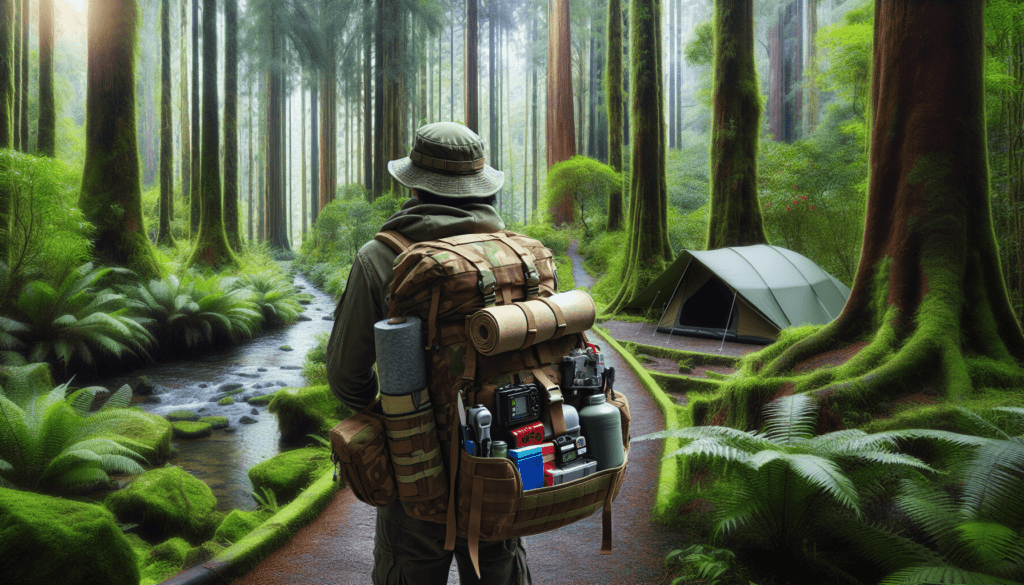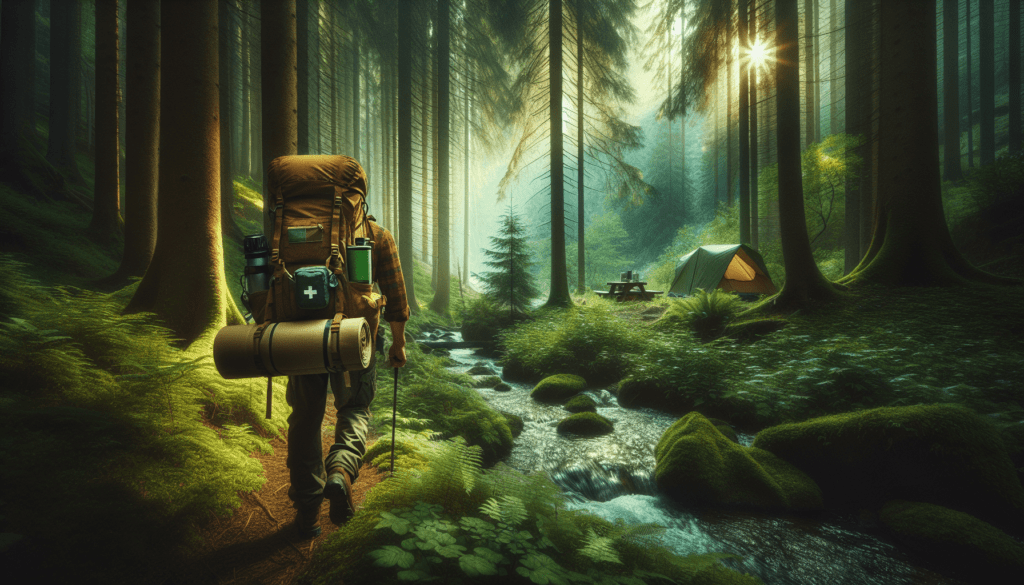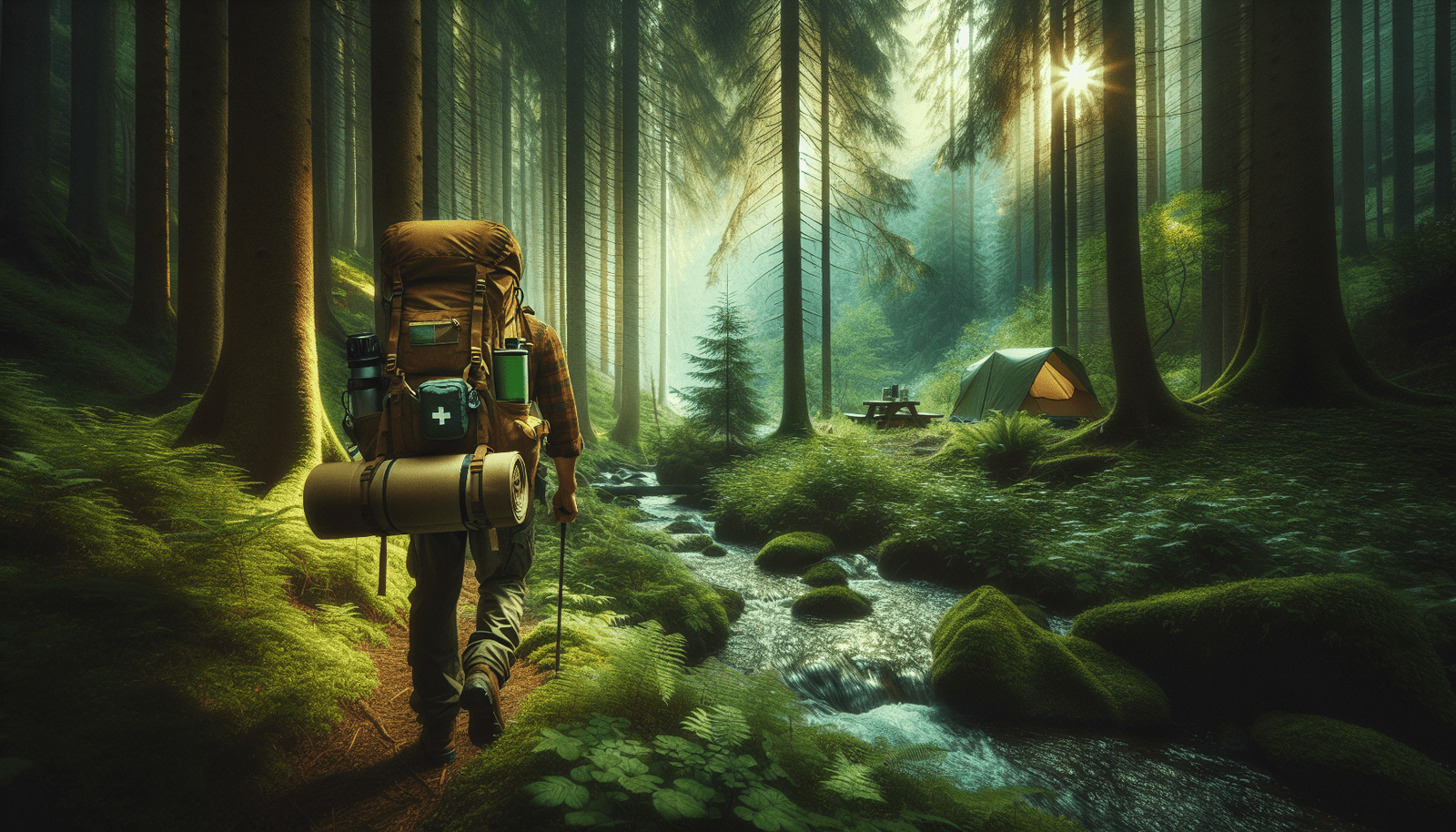Have you ever wondered about the best ways to stay safe while camping alone? Venturing out into the great outdoors on your own can be an incredibly rewarding experience, offering a profound sense of solitude and connection with nature that’s hard to match. However, solo camping also comes with its unique set of challenges and risks that you need to be prepared for.

Preparation and Planning
Research Your Destination
Before setting out, take the time to research your chosen campsite thoroughly. Knowing what to expect can make a significant difference in how well you handle unexpected situations.
Key Points to Research:
| Aspect | Details |
|---|---|
| Weather Conditions | Check the forecast and be prepared for sudden changes. |
| Wildlife | Understand the local wildlife and how to avoid encounters. |
| Terrain | Know the landscape to better prepare your gear and plans. |
| Regulations | Be aware of rules regarding fires, camping permits, and trails. |
Gear and Supplies
Packing the right gear is critical. Your safety and comfort highly depend on having the appropriate equipment.
Essential Gear Checklist:
| Item | Importance |
|---|---|
| Navigation Tools | Maps, compass, GPS device |
| First Aid Kit | Basic medical supplies |
| Shelter | Tent, sleeping bag, sleeping pad |
| Food and Water | Non-perishable food, water filter/purification |
| Clothing | Weather-appropriate attire |
| Tools | Multi-tool, knife, fire starter |
Share Your Plans
Always inform someone you trust about your itinerary. Share your detailed plans, expected return time, and emergency contact information. This step can be a lifesaver if you encounter trouble and cannot communicate.
While You Are Camping
Setting Up Camp
Choosing the right spot and setting up your camp properly is fundamental for your safety.
Ideal Camp Spot Criteria:
| Criterion | Description |
|---|---|
| Flat Ground | Prevents discomfort and rolling during sleep. |
| Away from Water | Avoids floods and mosquitos; stays dry. |
| Shelter from Wind | Uses natural barriers like trees or rocks. |
| Safe Distance from Trails | Minimizes risk of human and animal encounters. |
Fire Safety
Fire can be both a beneficial tool and a dangerous hazard. Knowing how to manage it responsibly is crucial.
Fire Safety Tips:
- Build a Safe Ring: Clear a 10-foot radius around your fire pit.
- Keep It Small: Maintain a manageable fire size.
- Extinguish Properly: Use water to drown the fire, stir the ashes, and ensure it’s cool to touch.
Food Storage and Cooking
Storing and cooking food properly can prevent foodborne illness and deter wildlife from visiting your campsite.
Food Management Tips:
- Use Bear Canisters: Store food and scented items in bear-proof containers.
- Cook Away from Sleeping Area: Prepare and eat food at least 100 yards from your sleeping area.
- Hang Food: Suspend food supplies high between trees when bear canisters are not available.

Safety First
Stay Hydrated
Dehydration can sneak up on you quickly when you’re active outdoors. Always ensure you have access to clean, potable water.
Water Tips:
| Method | Description |
|---|---|
| Purification Tablets | Effective but may alter taste. |
| Filtration Systems | Removes particulates and pathogens. |
| Boiling | Boil for at least one minute. |
Navigational Skills
Getting lost is a primary concern for solo campers. Adept navigational skills can prevent this and help you find your way if you do stray from your planned route.
Navigation Tips:
- Practice Map Reading: Understand how to read topographical maps.
- Use Compasses and GPS: Know how to use these tools in conjunction.
- Mark Waypoints: Take note of significant landmarks as reference points.
Be Wildlife Aware
Understanding the habits and habitats of the local wildlife can go a long way in keeping you safe.
Wildlife Safety Tips:
| Animal Type | How to Avoid |
|---|---|
| Bears | Make noise, avoid surprising them, use bear spray. |
| Snakes | Watch where you step, use a flashlight at night. |
| Insects | Use repellents, wear long sleeves and pants. |
Emergency Preparedness
Know Basic First Aid
Having a basic understanding of first aid is essential. This knowledge can be a difference-maker during emergencies.
First Aid Basics:
- CPR: Know how to perform CPR.
- Treating Cuts/Scrapes: Clean thoroughly, apply an antiseptic, and bandage.
- Dealing with Sprains: Rest, ice, compress, and elevate the injured limb.
Emergency Communication
Being able to contact help is a crucial part of solo camping, especially when you find yourself in trouble.
Communication Tools:
| Tool | Usage Situation |
|---|---|
| Satellite Phone | Best for remote areas with no cell service. |
| Personal Locator Beacon | Sends SOS signals, useful in life-threatening situations. |
| Whistle | Simple and effective for short-distance alerts. |
Survival Skills
While it’s not pleasant to think about, knowing some basic survival skills can significantly boost your confidence and safety profile when camping alone.
Survival Skills to Learn:
- Fire Building: Master different fire-starting techniques.
- Shelter Construction: Know how to build a makeshift shelter if your tent fails.
- Finding Food: Learn how to identify edible plants and animals.
Trust Your Instincts and Stay Aware
Listen to Your Gut
When you’re out there on your own, something doesn’t feel right; it often isn’t. Always trust your instincts—they’re there to protect you.
Gut-Checking Situations:
- Unfamiliar Noise: Investigate cautiously.
- Suspicious Activity: Move to a more secure location.
- Environmental Changes: Adapt your plans accordingly.
Stay Connected
Even when you’re seeking solitude, maintaining some form of connection with the outside world is wise.
Stay Connected Tips:
- Check-in Regularly: Periodically update someone on your status.
- Use a Durable, Reliable Phone: A rugged phone can withstand the elements better.
- Local Resources: Familiarize yourself with the nearest ranger stations or emergency services.
Conclusion
Camping alone can be an empowering and enriching experience, offering a deep sense of independence and communion with nature. By taking the time to prepare, equipping yourself properly, and staying aware and cautious, you can ensure that your solo adventure is not just thrilling but also safe. Your safety is in your hands, so plan meticulously, trust your instincts, and cherish the solitude that only nature can offer. Happy camping!
Support us! Wilderness gear Pro may earn a small commission from affiliate links in this article. Learn More

